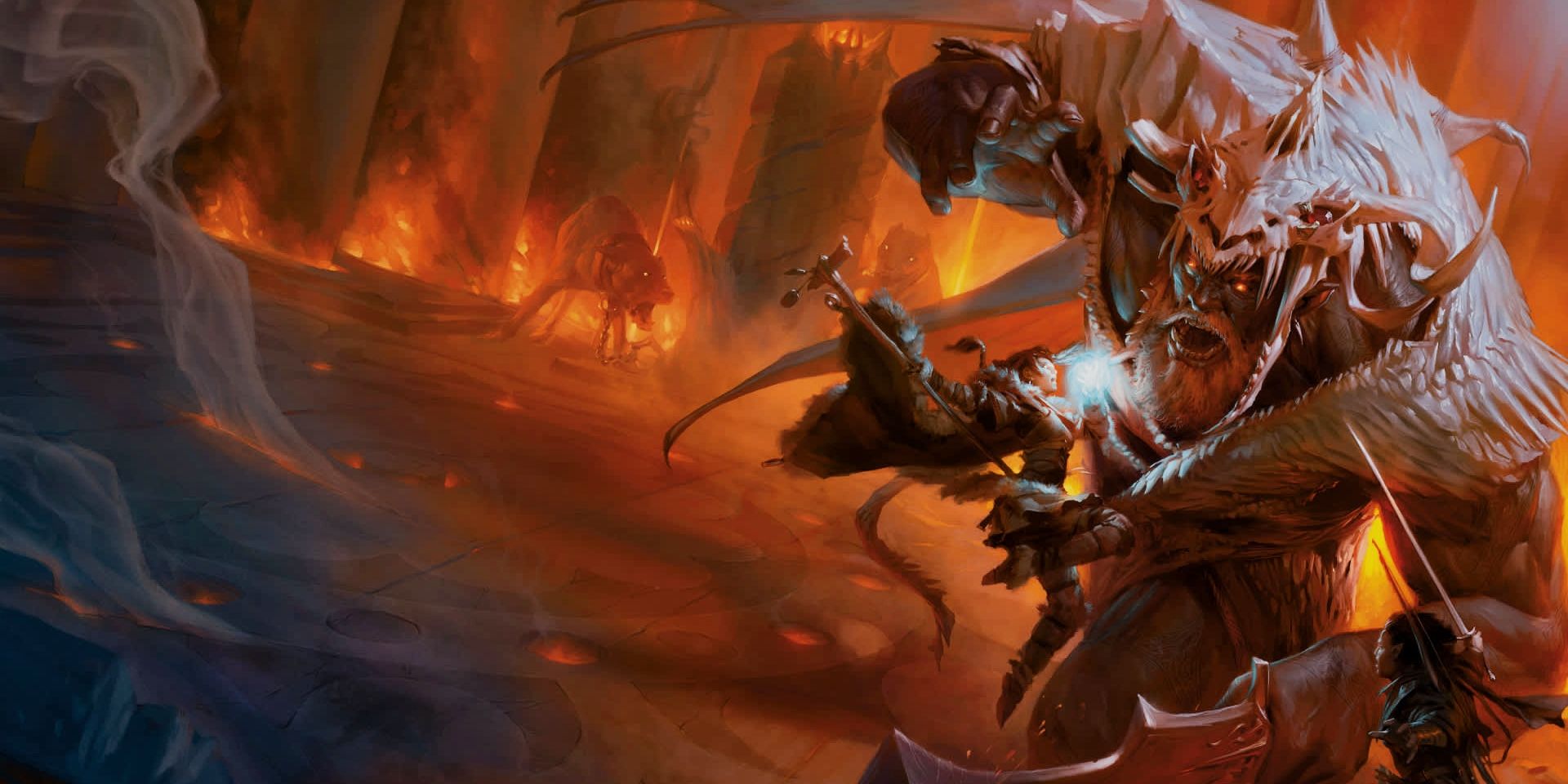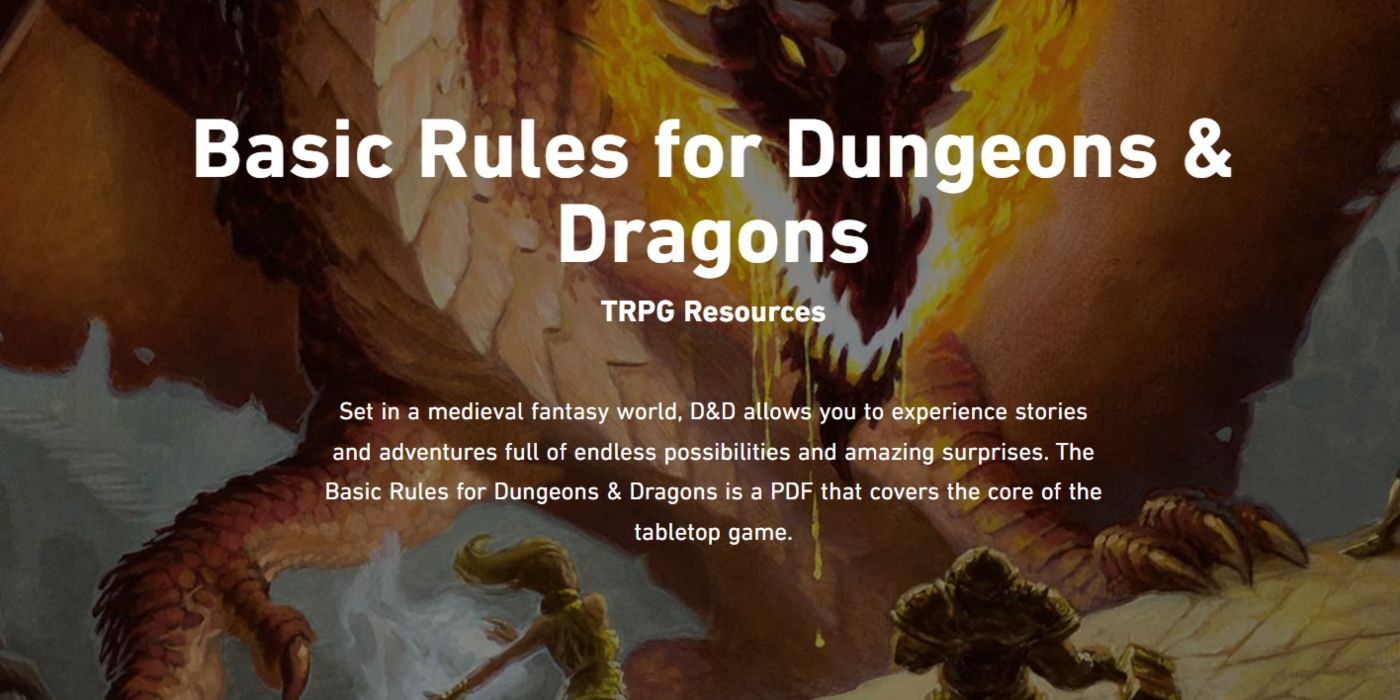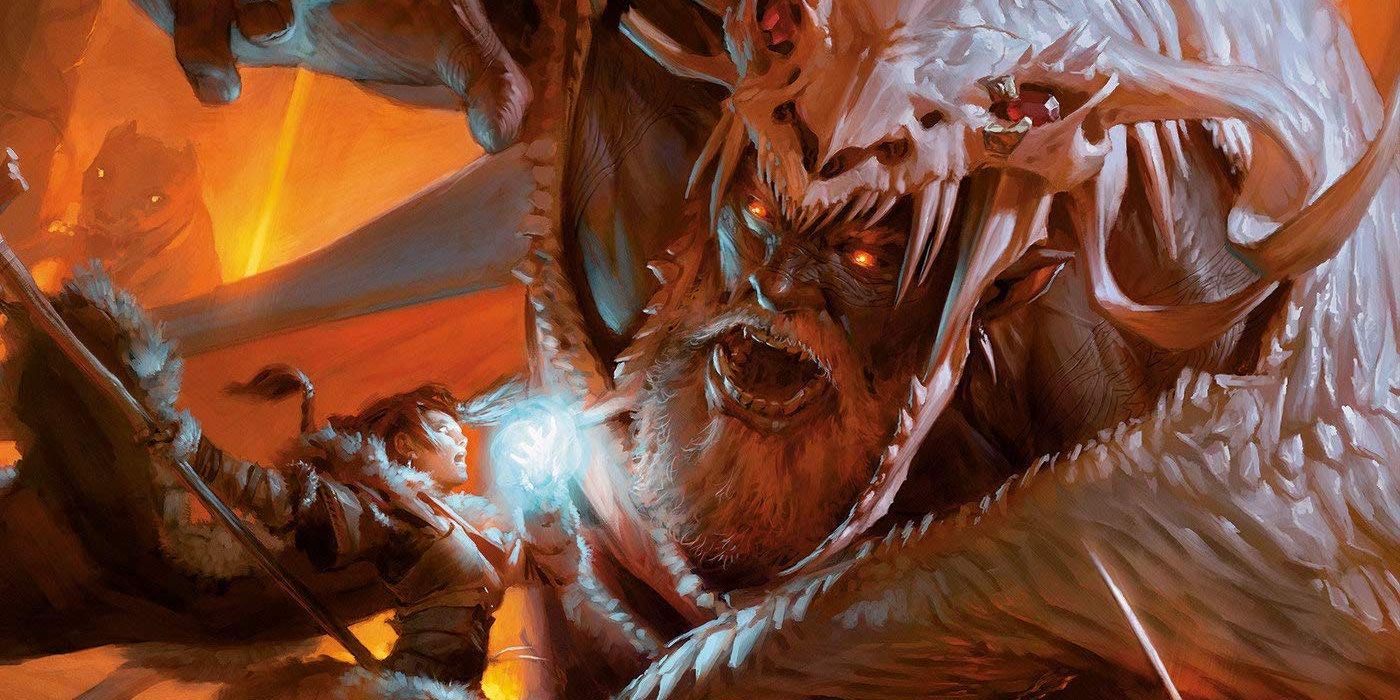Summary
- Dungeons & Dragons 5th Edition has achieved unprecedented popularity and mainstream recognition through its mentions in popular shows, podcasts, and video games.
- Starting to play D&D 5e can be challenging due to its complex rules and the need for a regular group. However, there are various ways to ease the transition into this rewarding hobby.
- Players can find a group to play with through friends, local game stores, community events, or online platforms like Roll20. Additionally, watching actual play shows like Critical Role can help new players learn the rules and get inspired.
Dungeons & Dragons Fifth Edition has elevated the game's popularity to new heights and broken into the mainstream in a way no other version of the game has. Mentions in shows like Stranger Things and Community, the success of actual play podcasts like Dimension 20 and Critical Role, and acclaimed video games like Baldur's Gate 3 have sparked mass enthusiasm.
However, it can still be difficult to actually start playing D&D 5e. It's a dense game with a surprising number of rules for new players to learn. It also requires a group who can get together to play regularly. This can make it difficult for new players to get into the game. However, there are many ways people can ease their transition into D&D's very rewarding hobby.
Finding A Dungeons & Dragons Group
D&D 5e is not a solo activity. It requires a group with one Dungeon Master and several players, with the typical minimum being three. For players to learn how to play Dungeons & Dragons, they are eventually going to need to find a table they can play at. Fortunately, the modern world gives more ways than ever to manage this.
With Friends
The most traditional way to play D&D is with a group of friends. Some prospective players might be lucky enough to know people already involved with the hobby. Others might have a group of friends who are interested in the idea of storytelling and dice games. Many people will have friends, family, or others they can tempt into a game.
This has a lot of advantages. It ensures chemistry and averts the potential awkwardness that can come from gaming with new people. It also increases the chances of being able to get together regularly. However, it can start the group playing at once with no experts. In addition, the player organizing is more likely to become the Dungeon Master, which some new D&D players might want to avoid.
Local Game Stores
Dungeons & Dragons is a significant driver for many local game stores. Aside from selling the books, they often have playing spaces for groups to meet up. Many stores offer weekly, fortnightly, or monthly D&D sessions organized by the store or by customers that are open to the general public.
Some game shops may even offer tutorial games or taster sessions to help new players learn the basics of D&D 5e. Expertise is a great help for learning the game, and a game store will likely come with some assurance of professionalism and dedication. However, stores may charge for these games, which can be a problem for some players.
Community Events
Public D&D isn't completely focused on game shops. As it's become more popular, it's become a much more acceptable and commonplace activity for local groups, clubs, and communities to host. Community centers might have people running games, many of which will have people willing to show new players how to play D&D.
This is especially true for people at college or university. Many have some sort of tabletop gaming society, which overlaps significantly with D&D. Joining these clubs can be an excellent way to find people looking for a new D&D player at their table, with the added benefit of having more in common with these people than complete strangers.
Online
D&D no longer has to be played solely over a physical table. Getting everyone in the same place can be problematic for groups, particularly if they aren't dedicated to the game yet. Roll20.net is the go-to website for many people to play D&D and other TTRPGs online. Startplaying.games is an option specifically for new players, with paid professional DMs hosting introductory sessions.
Learning a new website interface can be daunting, particularly on top of getting to grips with a new game and playing with total strangers. However, Roll20 and similar websites often have guides to ease new players in. They also offer far more prospective groups than any other method. Many Roll20 DMs set up games especially for new people, helping to ease players into the game alongside others with similar experience levels.
Learning To Play Dungeons & Dragons From Web Shows
Sometimes, the rules are the most daunting part of getting started with Dungeons & Dragons. Although it's more simple than many previous versions, it's still a dense rulebook. It can be hard to click with, especially for players who have never experienced anything similar. Watching other people play D&D 5e can be a way to pick the rules up. "Actual plays" are a type of podcast or web series where groups play D&D and similar games to tell a story for others' entertainment.
Actual Play Recommendations For Learning Dungeons & Dragons
Critical Role is far and away the most popular D&D actual play in existence. Its Twitch streams have launched an entire entertainment company, including the Legend of Vox Machina TV show. Many players have gotten their start and been inspired to learn Dungeons & Dragons from Critical Role. Their Handbooker Helper series breaks down the basic rules of D&D in a way that is easy for new players to learn.
Not Another D&D Podcast has been highlighted by many players as a valuable way to learn Dungeons & Dragons. Although its players don't follow the rules rigidly, they come closer than many other shows. In particular, Not Another D&D Podcast sticks closely to the rules for combat, the most in-depth part of the Player's Handbook and the hardest part for many players to grasp.
High Rollers is another classic, either its main show or its spinoffs running official Dungeons & Dragons adventures to give a taste of the game. There are even High Rollers episodes where new players learn to play Dungeons & Dragons. This notably includes their game with the cast of Baldur's Gate 3, "High Rollers Presents: Shadows of Athkatla."
Downsides Of Learning From Actual Plays
There is no denying that actual plays and similar shows are a helpful way to learn the Dungeons & Dragons rules. However, they're not perfect. For one thing, many podcast tables play fast and loose with the rules to create better entertainment. New Dungeons & Dragons players might pick up bad habits or incorrect rulings without even realizing it, and they'll have to unlearn them in a later game.
In addition, the format itself can act against new players. Many actual play shows are edited to make for better content, particularly more short-form series like Dimension20. Even if they're not, many have professional entertainers or actors playing. This can give a false impression of how dramatic, fast-paced, and well-crafted real-life Dungeons & Dragons is. Most games will not have career entertainers paid to produce high-quality content, instead being labors of love. As a result, actual plays can warp new player expectations.
Free Dungeons & Dragons Rules
Dungeons & Dragons has a reputation as an expensive hobby. Getting a full suite of books can strain players' wallets. However, it's entirely possible to get started for free. Wizards of the Coast has released Dungeons & Dragons Basic Rules, which, while lacking the full player experience, is more than enough to get started with.
The Dungeons & Dragons Basic Rules are available online for free, only requiring a simple download. They walk players through creating a character with limited options, playing adventures, and even running the game for a D&D DM. Players can get hours of Dungeons & Dragons content out of them and learn the game before springing for a full rulebook.
First Dungeons & Dragons Books To Buy
Ultimately, Dungeons & Dragons does cost money to get the full experience. New players who want to learn the game fully have to buy a few books. However, the necessary starting tools vary depending on what a new player wants to do. New players have less of a burden than new D&D Dungeon Masters, who need a more comprehensive set of tools.
First Books For A New Player
The Dungeons & Dragons Players Handbook is the most important book for any new D&D player to purchase. It contains the base rules for character creation, combat, and adventuring. It also explains Dungeons & Dragons and gives tips for new players to ease themselves into the game. After they've grown used to the base rules, new players might also want to buy D&D 5e books like Xanathar's Guide to Everything for expanded and updated tools.
First Dungeons & Dragons Books For A New DM
New Dungeons & Dragons Dungeon Masters need more investment to start out. If they already have a group prepared, they may want to share the costs with everyone. DMs still need a Player's Handbook, as it contains the base rules. DMs need to be even more familiar with it than players. In addition, the Dungeon Master's Guide is a valuable rulebook. It contains more advice than hard-and-fast rules but can talk a DM through almost any aspect of running a game and managing a Dungeons & Dragons group.
Other books a new Dungeons & Dragons DM might need include:
- The Monster Manual gives various creatures and enemies for the DM to run. Starting rules do include several free monsters, but these can grow stale after a while. Many premade Dungeons & Dragons adventures also refer to the Monster Manual.
- In a premade D&D 5e adventure, DMs can jump in and make their own adventures and campaigns. However, this is easier to do after they've run a few games so they know what to expect. The Dungeons & Dragons Starter Set comes with the Dragons of Shipwreck Isle adventure that walks the DM through running a game. Alternatively, Lost Mine of Phandelver and Dragon of Icespire Peak fulfill the same role.
Tips For Starting Dungeons & Dragons
It's not uncommon to have some difficulties when learning Dungeons & Dragons. The game has many rules to learn and a strong social element. A player might struggle to grasp a specific part of the game's rules or not fit in at the table. Ideally, a DM will be able to help a new D&D player with these difficulties. Even if they can't, it doesn't mean that the player shouldn't keep trying.
Players who want to try Dungeons & Dragons but struggle in their first games might benefit from changing something. If spellcasting rules confuse them, they could try playing a more straightforward class like the D&D 5e fighter until they have a better grasp on the rules. If they don't click with a table but enjoy the mechanics, they should look elsewhere. Perseverance is an important part of finding a Dungeons & Dragons group, and it more than pays off when things fall into place.
Even in groups that get on and enjoy the game, there are likely to be some problems. Dungeons & Dragons is complex, even for groups who know it well. New players are likely to forget rules, get things wrong, or suffer terrible consequences to their character. These don't mean a player is bad or shouldn't play. They're natural parts of starting out that happen to most Dungeons & Dragons players, especially if a whole group starts learning at once.
Roleplaying can be every bit as daunting as the mechanics for new Dungeons & Dragons players, particularly those without a background in improv, acting, or storytelling. New players can struggle to get into character or feel self-conscious. This is perfectly normal. Many players prefer to describe their character's actions and speech briefly in the third person rather than giving dramatic soliloquies in character.
Some players might start off doing this and ease themselves into more full-on roleplaying as they get more comfortable with the game. Others will always prefer to keep in-depth character work at arm's length and enjoy it more as a game. These are all valid approaches that many Dungeons & Dragons tables take. The game can suit any comfort level with storytelling. Dungeons & Dragons is about having fun first and foremost, not impressing others with acting skills.
It's also important to remember that there is a vast wealth of help available online. The internet is full of tips for new Dungeons & Dragons players. These cover every part of the game, from character creation to combat to roleplaying advice and even to videos about the lore of various D&D settings and managing real-world issues at the table. A new Dungeons & Dragons player is never on their own when trying to figure things out.




